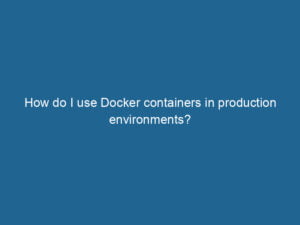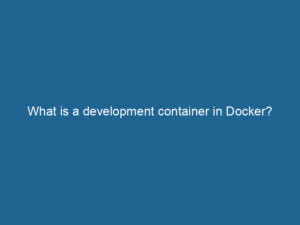Docker’s versatility and widespread adoption have led to numerous integrations and diverse use cases across various industries. Its ability to encapsulate applications and their dependencies into portable containers makes Docker an essential tool for modern software development, deployment, and operations.
One of the primary integrations is with CI/CD pipelines, where Docker plays a critical role in automating the build, test, and deployment processes. Tools like Jenkins, GitLab CI, CircleCI, and Travis CI have built-in support for Docker, allowing for seamless integration. By using Docker containers, development teams can ensure that their code is tested in consistent environments, reducing the risk of discrepancies between development, testing, and production stages. This integration leads to faster build times, more reliable deployments, and quicker feedback loops.
Another significant integration is with cloud platforms such as AWS, Google Cloud, and Microsoft Azure. These platforms offer native support for Docker, providing services like Amazon ECS, Google KubernetesKubernetes is an open-source container orchestration platform that automates the deployment, scaling, and management of containerized applications, enhancing resource efficiency and resilience…. Engine (GKE), and Azure Kubernetes ServiceService refers to the act of providing assistance or support to fulfill specific needs or requirements. In various domains, it encompasses customer service, technical support, and professional services, emphasizing efficiency and user satisfaction…. (AKS) for managing containerized applications at scale. Docker’s compatibility with these cloud providers allows for flexible deployment options, whether you prefer to run“RUN” refers to a command in various programming languages and operating systems to execute a specified program or script. It initiates processes, providing a controlled environment for task execution…. containers on managed Kubernetes services, virtual machines, or serverless environments. This flexibility makes it easier to adopt multi-cloud or hybrid cloud strategies, optimizing costs and improving resilience.
Docker is also widely used in microservices architectures, where applications are broken down into smaller, loosely-coupled services that can be developed, deployed, and scaled independently. Docker’s containerization technology makes it easier to manage these services, ensuring that each microservice runs in its isolated environment with all necessary dependencies. This approach enhances the scalability, maintainability, and fault tolerance of applications, making it ideal for large, complex systems.
Data science and machine learning are other fields where Docker has proven to be invaluable. By containerizing data science workflows and machine learning models, researchers and data scientists can ensure that their environments are reproducible and shareable. Docker images can include specific versions of libraries, frameworks, and tools, eliminating the “it works on my machine” problem and facilitating collaboration. Furthermore, Docker’s integration with Jupyter Notebooks and other data science tools enhances the overall workflow, making it easier to develop, test, and deploy models.
In the realm of IoT (Internet of Things), Docker is used to manage edge devices and gateways. By deploying Docker containers on edge devices, organizations can ensure that their applications are consistent and up-to-date across all devices. Docker’s lightweight nature and low overhead make it suitable for resource-constrained environments, enabling efficient use of available hardware.
In summary, Docker’s integrations and use cases span a wide range of industries and applications. Its ability to provide consistent, portable, and isolated environments makes Docker an essential tool for modern software development, cloud deployments, microservices architectures, data science, and IoT. By leveraging Docker, organizations can enhance their development workflows, improve scalability, and ensure the reliability of their applications.




